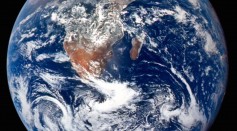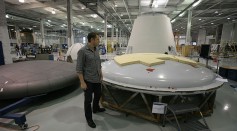SpaceX
Another Falcon 9 Launch—Will This One Be Different?
Musk Explains Rocket Landing Failure
Enough About Espresso—Here’s the Important Stuff that Landed on the International Space Station Today
The Budget Rocket Battle Has Begun with New Rocket Built to Take on SpaceX
SpaceX Stage 1 Failed, But What Will Still Make It To the International Space Station?
Close, But No Cigar—SpaceX Rocket Recapture Fails Again
Round 2 For SpaceX’s 10-Point Landing
Round 2 For SpaceX’s 10-Point Landing
SpaceX Poised to Try Daring Rocket Landing Again
SpaceX Launches Two New Electric Satellites
Seventeen Years of Waiting Meets More Delays—Weather Pushes SpaceX Dscovr Launch to Tuesday

SpaceX Rocket to Launch Dscovr Satellite Tonight

Elon Musk Continues to Dream Big with Idea for Space Internet

The Truth Behind AI, and Why Elon Musk is Donating Millions To Protect Humanity from Robot Invasion
Most Popular

AI Revolution in Medical Education: Transforming How Healthcare Professionals Learn

Optimizing Complex Catalog Systems with Graph Theory and Indexing

Exploring Life Beyond Earth: Study Claims Other Planets Could Be Suitable for Alien Life

Nikolay Karpenko Biography, Photo, Career, Accomplishments





